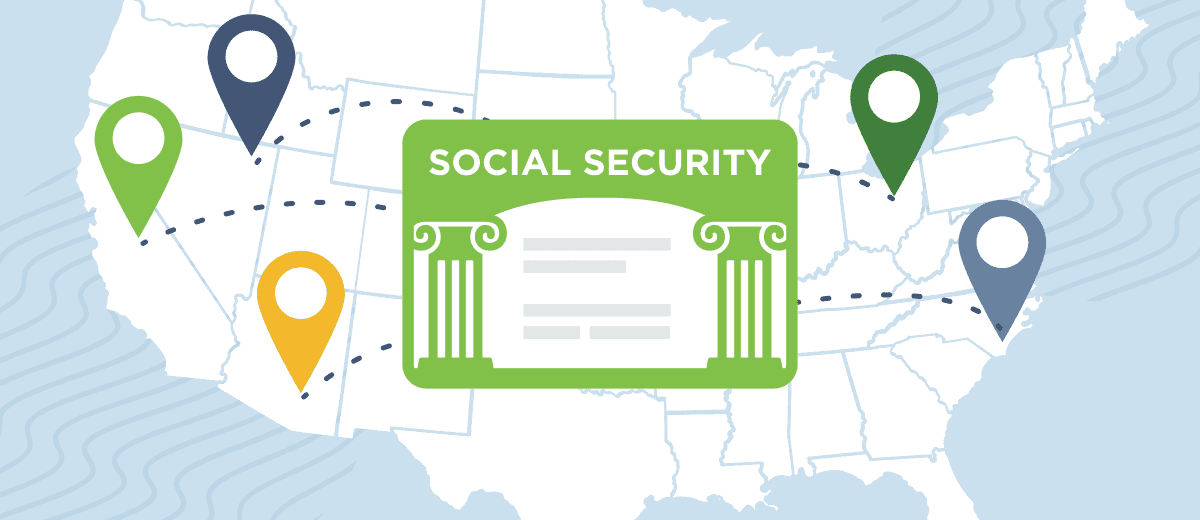Most background checks begin with an SSN trace to set the stage for more thorough and accurate screenings. A Social Security number trace, or SSN trace, is used as a pre-discovery tool to help employers reduce the risk of running background check screenings on the wrong individual.
Name and address changes, unintentional typos when candidates enter information, and identity theft can impact background check accuracy—and cost employers time and money. An SSN trace helps employers assess candidate-provided information before diving into more comprehensive screenings, like criminal record checks and driving record searches.Here’s what to know about SSN traces.
What Is An SSN Trace?
A SSN trace, sometimes called a Social Security number background check, is a database search used to confirm the validity of a Social Security number. The search typically uses information from lending institutions, utilities, schools, and credit card companies to confirm the validity of the SSN provided by a candidate.
An SSN trace cannot confirm a candidate’s identity or if a SSN belongs to a specific individual. Instead, the search returns basic information connected to the SSN the candidate shares during the application process. Results can include the year the Social Security Administration issued the SSN, the state in which it was issued, names associated with the SSN, and address history.
What is the difference between an SSN trace and SSN verification?
An SSN trace pulls a wide range of information regarding the SSN in question, and is typically used during pre-employment background checks. SSN verification is often used after hiring to confirm the name and SSN number of an employee matches the Social Security Administration’s record, using Form I-9.
Why Employers Use An SSN Trace For Background Checks
A SSN trace is an important first step during pre-employment background checks. Employers use SSN traces to help verify candidate-provided information in order to set the foundation for more accurate additional background screenings.
Here’s a closer look at some of the benefits an SSN trace offers employers.
1. Check for potential identity issues
An SSN trace isn’t an SSN verification and it doesn’t verify a candidate’s identity. Instead, employers can use a SSN trace check to determine the validity of the Social Security number provided. In other words, the check makes sure the Social Security number a candidate enters on their employment paperwork is real.
2. identify potentially fraudulant ssns
SSN traces also help employers verify if candidate-provided information matches records associated with a specific Social Security number. For example, an SSN trace might show information that’s connected to a different name or address history. Or the search could show that the Social Security number provided is on the Social Security Administration’s Death Master File.
Signs of mismatched information could indicate mistaken identity issues or identity theft. Catching errors or signs of potential fraud early in the application process helps employers take appropriate next steps to safeguard the background check process. This may include asking a candidate to correct their information or removing a candidate from consideration for a role.
3. list additional names and addresses
An SSN trace can show multiple names, including maiden names and aliases. Results may also indicate that the candidate has lived at multiple locations. Employers can use this information to cast a wider net when running additional background check screenings, such as state or county criminal record checks.
This allows employers to ensure thoroughness when looking into a candidate’s background. Without an SSN trace, records under a different name or located in another jurisdiction may go unchecked.
4. streamline the background check process
Matching an incorrect Social Security number to an individual could cause employers to deny a job offer to a qualified candidate or lead to time-consuming disputes that delay the hiring process. Conducting an SSN trace at the start of the pre-employment background check process allows employers to identify potential issues early on.
Information found during the SSN trace can help ensure additional background check results are for the correct individual and not mixed up with data for someone else.
What Does An SSN Trace Show?
What shows up on a Social Security number background check can vary, depending on who is conducting the search. CRAs that perform the check have access to different data sources, which could affect SSN trace results. But generally, employers can expect an SSN trace to show the following information related to the Social Security number provided by a candidate:
- Social Security number status: Confirms whether the number is a valid SSN that’s still in use
- Issue year: Verifies the year the Social Security number was issued
- Issue state: Confirms what state the Social Security number was issued in
- Associated names: Verifies the names associated with the Social Security number, including maiden names and aliases
- Addresses: Confirms recent address history associated with the Social Security number
It’s important to note, that the results of an SSN background check may vary depending on the CRA performing the search. CRAs have access to varying data sources which could result in differing SSN Trace results.
what an ssn trace doesn’t show
Though SSN Traces can be a helpful starting point in the background check process, they’re not an exhaustive source of candidate information. For example, an SSN trace doesn’t verify the owner of the SSN—only whether it’s valid and in use. Because this search is limited in scope, employers may wish to expand their employee screening process with additional background checks.
How Far Back Do SSN Traces Go?
An SSN trace typically goes back a period of three to seven years. But how far an SSN search can go also depends on the different types of data being searched, along with the candidate’s age and credit history.
How To Run An SSN Trace Background Check
Employers can choose to run an SSN trace on their own, but a DIY approach can be challenging. Employers aren’t prohibited from requesting a Social Security number on job applications, but candidates aren’t legally required to provide one.
Partnering with a qualified background provider can help employers get the information they need and candidates feel more comfortable about sharing personal information. CRAs, like GoodHire, may also deliver more thorough and accurate SNN Trace results, and they help employers stay compliant with federal, state, and local regulations.
When working with a background company, employers also benefit from access to additional background check screenings that help hiring managers learn more about a candidate’s criminal record, driving records, credit history, and previous employment experience.
Reliability And Compliance with SSN Traces
SSN traces are only as reliable as the Social Security number submitted by a candidate.
While SSN Traces can be a helpful starting point in the background check process, they’re not an exhaustive source of candidate information.
For instance, employers cannot use SSN traces to verify the owner of the Social Security number. But employers can perform additional background screenings, like criminal background checks and civil searches, to gather more information about a candidate.
Employers that partner with a CRA to run background screenings, like SSN background checks, are required to follow the federal regulations of the Fair Credit Reporting Act (FCRA). Under the FCRA, employers can ask for an individual’s Social Security number, but must send the candidate written notification of the intent to conduct a background check and receive the candidate’s written consent before proceeding.
Employers that choose not to hire a candidate due to information found during a background check must follow the adverse action process.
Starting Running Employment Background Checks Today
Employers that partner with GoodHire to perform SSN trace and other background screenings experience an efficient and accurate background check process. GoodHire’s access to multiple databases means public records can be searched quickly and screenings can be completed in as little as one day.
GoodHire’s 100+ screening options can be easily customized into background check packages for every role, at any scale and our user-friendly online platform with built-in, automated workflows and compliance support helps employers hire faster. Get started with employment background checks today.
Individuals that want to see what may show up on a background check can also benefit by working with a trusted background check partner, like GoodHire. Reports are easy to order online and results only take a few available for review through GoodHire’s candidate portal.
Disclaimer
The resources provided here are for educational purposes only and do not constitute legal advice. We advise you to consult your own counsel if you have legal questions related to your specific practices and compliance with applicable laws.
About the Author
Sarah writes about small business topics and corporate communications. She has written on a wide range of topics, including background checks, hiring trends, company culture, and employee training and development. Her work includes educational articles, press releases, newsletters, and employee onboarding collateral.


